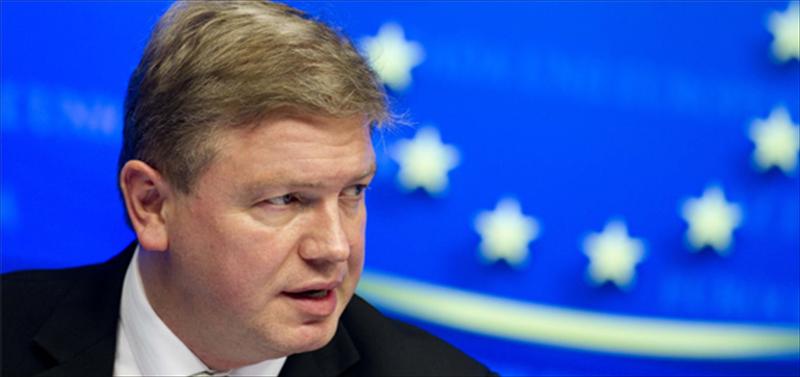This Op-Ed authored by the EU Commissioner for Enlargement and Neighbourhood Policy, Štefan Füle, was originally published in the dailies ‘Dnevni Avaz’, ‘Večernji List’ and ‘Euro Blic’ on 8 October
This year has been extremely difficult for Bosnia and Herzegovina. The scenes of devastation caused by the floods will be difficult to forget. Yet, despite the unprecedented scale of economic loss and personal suffering, the spirit of cooperation helped the country and its citizens to overcome the worst and to gradually turn to the future.
In these difficult moments, the EU has shown solidarity with the citizens of Bosnia and Herzegovina: firstly with immediate and substantial rescue and relief actions and secondly by supporting recovery and reconstruction. In mid-July, the European Commission, France and Slovenia organised a donors’ conference which raised over €800 million of soft loans and grants from international donors. In August we launched the EU Floods Recovery Programme for Bosnia and Herzegovina worth over €43 million to help local communities and the most vulnerable.
The same spirit of solidarity, shared responsibility and urgency should guide political leaders in Bosnia and Herzegovina on the country’s path towards the EU.
This has hardly been the case so far. Bosnia and Herzegovina has not overcome the standstill in European integration because of a lack of collective political will on the part of its leaders, despite the honest efforts of some. Therefore, the Stabilisation and Association Agreement with the EU – which would be an important step on the country’s path to the EU – is still not in force.
Back in 2010, when I started as Commissioner for Enlargement and Neighbourhood Policy, I had hoped that Bosnia and Herzegovina would build on previous achievements and, with support from the EU, take effective steps to advance the country’s path to the EU. I was pleased when we jointly managed to develop a Road Map preparing for a membership application. However, the country’s leaders did not respect their commitments as they failed to build consensus, pursuing their own ethnic or party agendas instead. If the current stalemate continues, the economy will shrink further, people will become poorer and the young and the bright will continue to emigrate.
It does not have to be like this.
The political leaders in the country have to come together and collectively deliver on citizens’ aspirations. In February this year, due to their failure to agree on the required reforms, I had to end my facilitation efforts. But the EU did not give up on Bosnia and Herzegovina. The floods showed that a strong solidarity binds this country and the rest of Europe. The Compact for Growth presented in Sarajevo this summer proposes a number of concrete measures to address key structural economic problems. These should be the basis for political parties in the future coalition to kick-start urgent economic reforms. After the elections, decisive steps need to be taken to bring the country back on the EU track, to allow Bosnia and Herzegovina to move from its post-Dayton phase to the EU accession one. There is no reason why Bosnia and Herzegovina should fall behind other countries in the region. It is time for the country’s politicians to engage with renewed vigour and work together towards a better future for their people.




